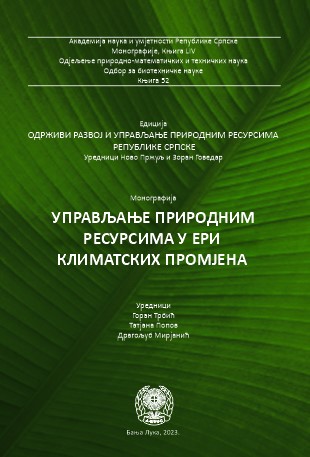Climate Change Impact on Water Resources in the Republic of Srpska
DOI:
https://doi.org/10.7251/EORU2308449LKeywords:
Water resources, climate change, average annual dischargeAbstract
Global warming, in addition to population growth and intensive industrialization, is one of the most significant pressures on water resources worldwide. The most significant impacts of climate change that directly affect water resources are changes in the distribution of precipitation and snow cover, as well as the increased frequency of floods and droughts. Analyzes of average annual temperatures in the last 60 years have shown that the trend of increasing the average annual air temperature in the Republic of Srpska already exists, and precipitation regimes have changed. The period after 2000 is characterized by shifts of very or extremely dry years and years in which extreme floods have been recorded. In order to determine the impact of climate change on water resources in the Republic of Srpska, a comparison of average annual and monthly discharge of watercourses for the period from 1960 until today was performed, depending on the available data for individual watercourses. After 1980, the rivers Bosna, Vrbas and Vrbanja are characterized by reduced water discharge compared to the previous period, i.e. they have lower values of the average annual discharge with significantly higher oscillations. In the West of the Republic of Srpska, the situation is different: rivers Una and Sana also have significant variations in the average annual discharge, but the river Una has a higher annual discharge after 2000 compared to the average for previous twenty-year period, while the average annual discharge of the Sana River has not changed in relation to the reference period.
